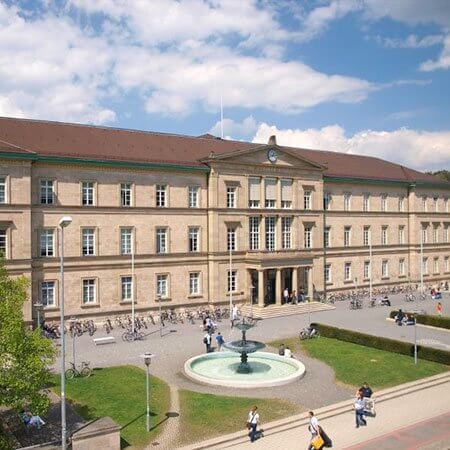Pheochromocytoma is benign in 90% of cases, and in 10% of patients, it is a malignant adrenal tumor that produces catecholamines (adrenaline and norepinephrine). The usual treatment of pheochromocytoma in Germany is surgery. If there is a necessity for an examination for suspected pheochromocytoma and cancer treatment abroad, you can contact one of the German Urological Centers. On the Booking Health website, you can find out treatment costs and make an appointment at a hospital. Our company's specialists will take care of the organization of treatment.
Content
- Surgery for pheochromocytoma
- Non-surgical treatment for malignant pheochromocytoma
- Where to seek medical help for the treatment of pheochromocytoma?
Surgery for pheochromocytoma
In most cases, surgery is the main and only treatment method for pheochromocytoma. The surgery options are as follows:
- A laparoscopic adrenalectomy is a minimally invasive operation to remove the adrenal gland. This is the main treatment for pheochromocytoma in developed countries. The resection is performed through short incisions, which reduces the rehabilitation time.
- An open adrenalectomy is an operation through a long incision. This surgical procedure is used in countries with a low level of medicine. In developed countries, it is only used for a malignant form of pathology, as it allows doctors to remove cancer more reliably.
- A bilateral adrenalectomy may be required if both adrenal glands are affected. This type of cancer is usually associated with hereditary diseases, such as multiple endocrine neoplasia type 2 or Von Hippel-Lindau disease. After the removal of two adrenal glands, patients receive lifelong glucocorticoid replacement therapy.
- An open or laparoscopic bilateral partial adrenalectomy is a surgical procedure that preserves the part of the adrenal gland that is responsible for the production of glucocorticoids. After such an operation, patients do not require glucocorticoids, or the need for drugs is lower, but there is a higher risk of cancer recurrence.
Surgery usually cures the disease once and for all. Periodically, patients undergo examinations in order to identify the pathology in time in case of its recurrence, but the risk is low because the frequency of relapses after treatment of pheochromocytoma in Germany does not exceed 3%.
Non-surgical treatment for malignant pheochromocytoma
If, based on the results of the diagnostic examination, cancer is found to be unresectable, other methods are used instead of surgery. These are the following:
- Radiation therapy reduces symptoms and shrinks the size of the adrenal tumor.
- Systemic chemotherapy shrinks the size of the tumor and improves blood pressure control, but does not significantly affect survival rates and is effective in only one in three patients with malignant pheochromocytomas.
- Radionuclide therapy is used to treat tumors that can accumulate meta-iodobenzylguanidine. Up to 45% of patients respond to this therapy. After successful treatment, the size of tumors shrinks and life expectancy increases.
- Targeted therapy is a new direction in the treatment of pheochromocytoma. Tyrosine kinase inhibitors and angiogenesis inhibitors are used, which block the VEGFR2 protein and prevent the growth of blood vessels in the tumor. More than half of patients respond to treatment with tyrosine kinase inhibitors, while only a third respond to therapy with angiogenesis inhibitors. Also in clinical trials, VEGFR2, c-MET, and HIF2A inhibitors are used.
Where to seek medical help for the treatment of pheochromocytoma?
If there is a necessity for an examination and treatment in Germany, you are welcome to use the Booking Health service. Our website lists the best German hospitals specializing in the treatment of urological diseases. On our website, you can find out the current treatment costs and prices for examinations, and get medical services at the selected hospital. When using our service, the cost of treatment in Germany will be lower for you. Prices for medical services at German hospitals are reduced due to the absence of additional taxes for foreign patients. Our company's employees will take care of all the arrangements for your examination and treatment abroad, and you will be able to fully concentrate on restoring your health.
Authors:
The article was edited by medical experts, board-certified doctors Dr. Vadim Zhiliuk and Dr. Sergey Pashchenko. For the treatment of the conditions referred to in the article, you must consult a doctor; the information in the article is not intended for self-medication!
Sources:
National Center for Biotechnology
Medical News Today
Medscape




















